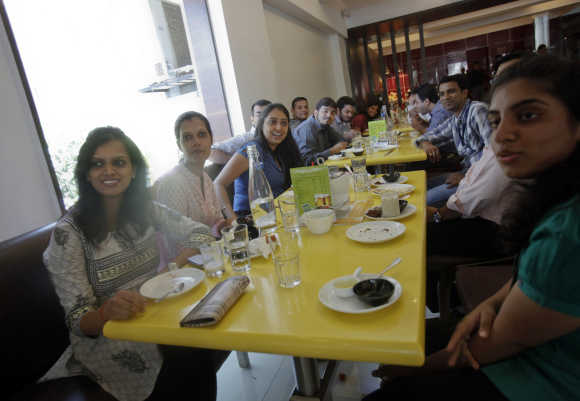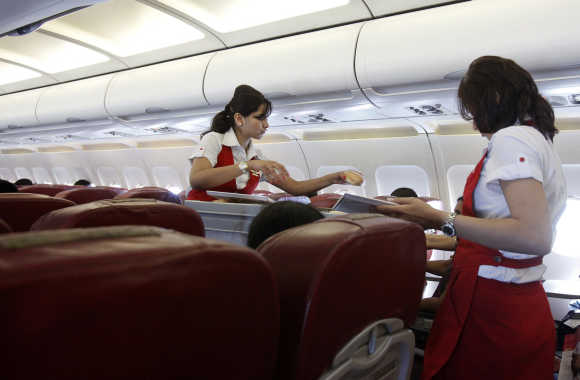 | « Back to article | Print this article |
How Indian youngsters are coping with economic downturn
It has been tough for youngsters who've joined the workforce in the past couple of years. With stock markets going nowhere, weak corporate results, absence of reasonable wage rises and the possibility of pink slips, while prices of all goods have been consistently rising, the days of being loose with money seem to be past.
Yes, one can count on credit cards, but how much? It has to be paid, after all, and at exorbitant interest rates. No wonder, cost cutting measures such as car pooling, more eating at home and even saving money for the rainy day are fast catching up.
Take the case of Reva George, 26, for example. This Bangalore-based teacher is pooling car trips and even walking to my college, if required.
Click NEXT to read more...
How Indian youngsters are coping with economic downturn
"It usually costs me around Rs 50 to get to college. Now, I auto-pool with two or three other people, so we spilt the fare," she says. Judith George, 24, has added bus travel to her routine.
This public relations professional saves a part of the Rs 80 she earlier used to pay to travel to office. "On my way back, I take the bus. It is much more economical than to take an auto," she explains.
Eating out has become a strict no-no for Priyanka Koijam, 27. "I hardly go out these days. I might do so maybe once in two weeks. I make it a point to cook. Ordering in every day was hurting my pocket," she admits.
Click NEXT to read more...
How Indian youngsters are coping with economic downturn
All three say their lifestyles were turning out to be expensive and it made sense to be a little economical with their spending.
Although they have got some rises in their respective jobs, it was definitely not enough to keep up with the increasing price of living.
Reva has even put caps on various expenses. For instance, there are now specific amounts she spends on laundry, parlour, travel and so on.
"I also keep aside some money which I use for one big expense in a month. Say, for contact lenses or for getting a new sari for college."
Buying bulk is the in thing for Koijam and Judith. Both buy groceries this way at the beginning of every month. Koijam says it has definitely proven cost-effective.
Click NEXT to read more...
How Indian youngsters are coping with economic downturn
"I have also started comparing prices. I go for a cheaper product when I am grocery shopping. I never thought I'd see the day where I'd be seeing which rice is cheaper and go for the cheaper one!" she says.
The cost saving is helping them save money. "Before, I used to live pay cheque to pay cheque. Now, at least, I have around Rs 7,000 saved in the month. I plan to open a recurring deposit in a month or so. I plan to invest around Rs 5,000 a month. And, as my salary increases, I will increase the amount," says Reva.
Judith plans to invest a lump sum in a fixed deposit.
Click NEXT to read more...
How Indian youngsters are coping with economic downturn
"I plan to put the money in the FD for about five to seven years. At least, this way, some money will be tucked away and I will earn a decent rate of interest on that," she says. Koijam says she has some savings every month, unlike before.
"During times like this, every drop matters. I am evaluating different investment options. An FD or a mutual fund scheme is what I am considering," she says.
A financial planner says with things not looking so good, saving money is the best thing to do in these times.
Click NEXT to read more...
How Indian youngsters are coping with economic downturn
For the likes of Reva and Judith and Koijam, equities should be the investment option, because it will help accumulate more over time. But, since the equity market is not giving much confidence, someone like Judith who is planning to invest a lump sum amount can put it in a debt fund and move money to equities over time.
"She can start shifting to equities if the markets were to fall. She has to use a systematic withdrawal plan and shift some money every month. As of now, her debt fund will give good returns," says the planner.
On the other hand, Koijam can start looking at systematic investment plans with her monthly savings.






